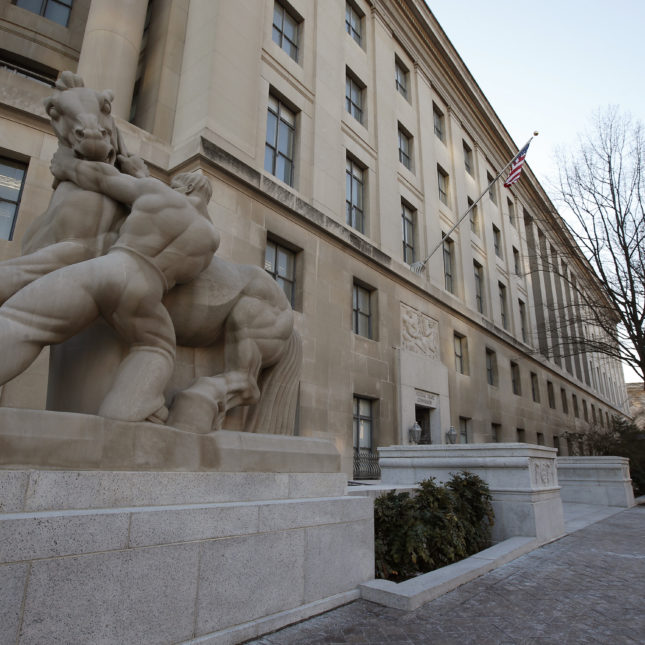Last September, the
FTC sued private equity firm Welsh, Carson, Anderson & Stowe and U.S. Anesthesia Partners, alleging the two parties conspired to create monopolies for anesthesia services. Both Welsh Carson and USAP have tried to
get the case thrown out, but the FTC recently doubled down. The agency asked the judge last month to ignore those companies’ pleas, calling their arguments “unavailing” in recent legal filings.
It’s not surprising the FTC is spending more time and resources on a lawsuit it initiated. But experts say the agency’s meticulous arguments and persistence to put Welsh Carson and USAP’s business strategy on ice sends the clearest warning yet: Firms that try to consolidate markets for physician services as a means to jack up prices won’t get away without a fight.
“This is a huge case,” said Jane Zhu, a physician and professor at Oregon Health & Science University. Zhu has
studied private equity’s effects in health care, and she said it’s a bold step for the FTC to call out physician group rollups for allegedly monopolistic behavior, and to try and hold private investors responsible for the portfolio companies they help create.
“It’s sending a political signal, at least in this administration, that the legal and regulatory risk of private equity in health care has heightened,” Zhu said.
In late January, the FTC filed motions — one against
Welsh Carson and another against
USAP — explaining why the lawsuit should proceed. The agency used prior antitrust court rulings and evidence gathered to date against Welsh Carson and USAP to persuade the judge to keep the case open.
“Unable to engage on the merits of the FTC’s claims, Welsh Carson instead raises a series of tangential arguments about corporate law and the FTC’s statutory and constitutional authority,” FTC attorneys wrote in the filing against the private equity firm. “None of them, however, entitle Welsh Carson to evade responsibility for its unlawful conduct.”
Paul Olszowka, an antitrust attorney who represents industry clients at Barnes & Thornburg, was particularly interested in one of the antitrust arguments. In their motions to dismiss the case, Welsh Carson and USAP cited a Supreme Court case from 1984, Copperweld v. Independence Tube, which ruled that a parent company can’t conspire with one of its own subsidiaries because, together, they equal one common entity.
However, the FTC is using that case against Welsh Carson and USAP. If they can’t conspire with each other to raise prices and grab market power, under Copperweld, then they are admitting that they are operating as one single enterprise. That means both companies could then be held liable for violating antitrust laws as that single enterprise, under Copperweld, according to the FTC.
“They’re using it offensively,” Olszowka said of the FTC’s Copperweld argument. “They’re saying because all these people are related and everybody owns each other, even though they [Welsh Carson] technically don’t have control over it, they’re related. They are one big entity. And the whole plan is to get all of these practices friendly with each other.”
“For antitrust nerds, that’s really, really interesting,” he said.
Acquisitions of physician groups by private equity firms
have soared over the past decade, leading to “exceptionally high” price increases as those firms accumulate more market power, according to the American Antitrust Institute. The bigger groups can command higher prices from health insurers, which may not be able exclude those physicians from networks. The quality of care also
could be harmed.
“The motivation is always to extract high prices,” Barry Furrow, a health law professor at Drexel University, said of PE-led physician deals. “That’s the goal of consolidation.”
While the FTC looks to permanently halt Welsh Carson and USAP from buying any more medical groups, some physicians have defended the private equity model, arguing it’s a more viable alternative over selling to the local hospital. But that is far from a universal view, and often comes from physicians who stand to reap the most from their PE deals.
“There are definitely physicians out there who look at private equity, and it makes them uncomfortable,” said Zhu, who is in the process of publishing a survey of physicians and their views of private equity. “The underlying business model of private equity and the uniqueness of how they structure their organization conflicts with [doctors’] priorities.”
Lawton Robert Burns, a health care management professor at the University of Pennsylvania, views the FTC’s pressure toward Welsh Carson a little differently. He thinks the current state of private physician ownership sounds familiar to the health care landscape from 30 years ago.
In the 1990s, private equity bankrolled medical groups that were called
physician practice management companies. A driving force behind those companies, similar to today, was to gain negotiating leverage over insurers and combat narrow networks.
But those physician practice management firms eventually folded or were sold off for cheap back to physicians, as insurance payments remained tight and practice costs continued to rise. New physicians especially were unhappy with giving up their revenue to someone else.
Many of those same issues are hitting
various physician firms backed by private equity. And the FTC’s antitrust pursuit of these companies is a new wrinkle within that old trend, according to Burns.
“We’re seeing some of the same fallout — public backlash, bankruptcies, financial trouble. And then to add to that, you have all of this regulatory scrutiny,” Burns said. “Health care is famous for history repeating. And I think history is going to repeat.”






